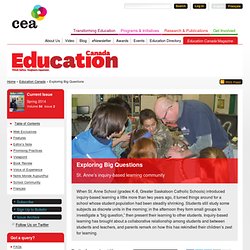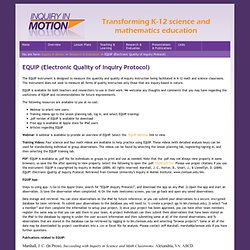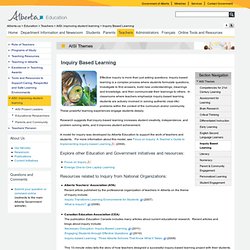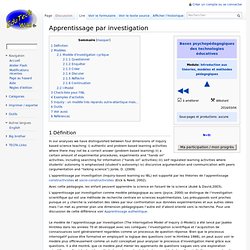

The Critical Thinking Consortium - Online sessions. TC² offers a variety of online learning sessions at reasonable rates to complement face-to-face workshops and presentations in supporting professional growth.

Spotlight sessions Spotlight sessions are one-hour interactive live webinars that develop a deeper understanding of our model of critical thinking. These sessions provide instruction, dialogue and helpful tips for educators who have had a basic introduction to our model. Spotlight sessions are arranged for dates and times that are convenient for their participants. They are chosen from our Spotlight sessions catalogue or are custom-developed to meet the needs of a particular group. Online coaching Participants use online opportunities with a facilitator to explore ideas, ask questions and obtain feedback and advice at a time chosen by the Partner. Scripted productions More formal, fully-scripted and recorded productions may be commissioned. Spotlight session themes Spotlight sessions are organized around four themes: Basic Advanced.
It's not about getting the right answers but rather, asking really good questions. Exploring Big Questions. The Ken Spencer Award Winner Saskatoon parent Megan Babyak remembers when her children brought home report cards stating “no conference required.”

The children had no obvious academic or behavioural problems, so there was no need to talk to the teacher. Even so, her oldest son, Marek, described by Babyak as “the kind of kid who wants to know how everything works,” had lost interest in school. His parents found this alarming, so last year they transferred Marek – now in Grade 6 – and his siblings Burke (Grade 4) and Audra (Grade 2) to St.
Anne School. The Babyaks had “heard good things” about St. Students “really have ownership of St. The school day embraces both open-ended inquiry and structured learning on core subjects. When Darren Fradette arrived as principal four years ago, enrolment was projected to slip further to 140 students. The changes at St. Serendipity played a role too. In fall 2011, St. Exploring Big Questions - A Principal's P.O.V. on Inquiry-based Learning.
EQUIP (Electronic Quality of Inquiry Protocol) : Inquiry in Motion. The EQUIP instrument is designed to measure the quantity and quality of inquiry instruction being facilitated in K-12 math and science classrooms.

The instrument does not seek to measure all forms of quality instruction–only those that are inquiry-based in nature. EQUIP is available for both teachers and researchers to use in their work. We welcome any thoughts and comments that you may have regarding the usefulness of EQUIP and recommendations for future improvements. The following resources are available to you at no cost: Webinar to orient new users Training videos (go to the lesson planning tab, log in, and select EQUIP training) .pdf version of EQUIP is available for download Free app is available at Apple store for iPad users Articles regarding EQUIP Webinar: A webinar is available to provide an overview of EQUIP.
Www.greenteacher.com/article files/apprentissageparinvestigation.pdf. Inquiry Based Learning. Effective inquiry is more than just asking questions.

Inquiry-based learning is a complex process where students formulate questions, investigate to find answers, build new understandings, meanings and knowledge, and then communicate their learnings to others. In classrooms where teachers emphasize inquiry-based learning, students are actively involved in solving authentic (real-life) problems within the context of the curriculum and/or community. These powerful learning experiences engage students deeply.
Research suggests that inquiry-based learning increases student creativity, independence, and problem solving skills, and it improves student achievement. A model for inquiry was developed by Alberta Education to support the work of teachers and students. Explore other Education and Government initiatives and resources: Resources related to Inquiry from National Organizations: Connect! Inquiry HUB. Reflections on Education, Technology and Learning. Apprentissage par investigation. 1 Définition In our analyses we have distinguished between four dimensions of inquiry based science teaching: i) authentic and problem based learning activities where there may not be a correct answer (problem based learning) ii) a certain amount of experimental procedures, experiments and “hands on” activities, including searching for information (“hands on” activities) iii) self regulated learning activities where students’ autonomy is emphasised (student's autonomy) iv) discursive argumentation and communication with peers (argumentation and “talking science”) Jorde, D. (2009) L'apprentissage par investigation (Inquiry-based learning ou IBL) est supporté par les théories de l'apprentissage constructivistes et socio-constructivistes (Eick & Reed, 2002).

Avec cette pédagogie, les enfant peuvent apprendre la science en faisant de la science (Aubé & David,2003). Les productions sont donc d'abord vues comme des étapes dans la compréhension croissante. 2 Modèles tiré de : [The Inquiry Page]